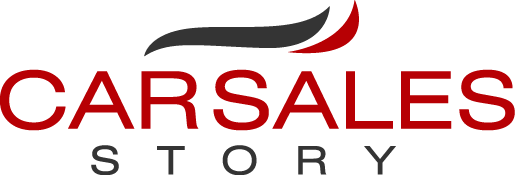Table of Contents
Superstar car salespeople and BDC representatives need to master auto sales skills to get ahead. One of the essential auto sales skills is the ability to do trial closes and then ask for the business confidently.
Imagine a world in which you were the only person with a unique superpower: You could read people’s thoughts, just by looking at them.
You would go to work every day and handle every auto sales negotiation correctly, always staying one step ahead of your customers.
When they bluff, you’d know. When they lie about how much discount they need to make a deal, you’d know. When they say they won’t pay a penny over invoice when they really would, you’d know.
What a successful salesperson you would be.
Guess what? You don’t have that superpower.
You are blind to what customers are thinking. You may pick up a subtle physical cue here or there, but overall, the customer’s mind is a black box.
Auto Sales Skills: How to Take Off the Blindfold
During your negotiations, you should be following a relatively simple template. Get the customer on a specific car, figure out how they want to buy the car (cash, lease, or finance), and then offer terms. These are the necessary auto sales skills.
When it comes to reviewing terms, you will often face a dilemma. How should you structure a deal?
How aggressive do you need to be in terms to make a deal?
Do you offer an aggressive number right off the bat? Or do you provide the standard price and see what they say?
You can’t know what is in a customer’s brain.
That is, you can’t know what is in a customer’s brain UNTIL YOU ASK!
How the BDC Can Ask Confidently (and Nicely)
Car sales skills come in all shapes and sizes. The ability to ask for money in a friendly, confident way is one of the vital differentiators between those who make an average income and those who make the top 5% of profits.
This applies to more than just money. In the BDC (Business Development Center), representatives need to ask for an appointment almost every time they are on the phone with a customer.
A top tier BDC representative will ask for the appointment at every opportunity (within reason). Every phone call by a BDC representative is an opportunity to provide a reason to come in. Perhaps the exact car they want is in stock, or there is a special sale running that includes the model they want.
Asking with confidence is vital. You need to believe in what you are offering in exchange. Does your tone of voice convey the reason for your call?
The benefit of the BDC is that your leads have often self-qualified. They will put in a lead describing what they are looking for.
Here is an example of confidently asking for an appointment, using the information provided by the customer:
“Thanks for jumping on the phone with me Tim. Last time we spoke you had mentioned that you were on the hunt for a 2020 Jeep Wrangler in the Steel Gray and Fire Red interior. I’ve just been notified that we recieved a car just like that today. I have some time available at 5:45pm today for you to come by, would that work for you?”
The BDC representative knows what the customer wants, so they can confidently ask for an appointment. There is value being offered by the representative.
The BDC is protected by the telephone. There is always an immediate opt-out available for the customer, as they can hang up. The BDC manager can monitor the word tracks of the representatives to make sure they are setting good appointments.
The salesperson that is face to face with a customer faces a different situation.
The Trial Close
When a salesperson is in front of a customer, they should be utilizing the trial close. Since it is so common to be working with a customer for the first time, you need a way to know if what you are showing the customer resonates with them.
Many salespeople ask for the business too early in the conversation because they forget to use trial closes.
The trial close is when the salesperson asks questions about how the customer feels about the sales process so far without directly asking for the business.
Trial Close:
“How do you feel about the lease special we have here on the windshield?”
Asking for the Business:
“If I was able to get you approved for this lease special, would you be ready to move forward today?”
The trial close is less direct than asking for the business. When you do constant trial closes throughout the process of showing a customer the car, you are getting a sense of the customer’s likelihood to buy without being overly pushy. You are “taking their temperature” instead of berating them.
If you have been taught to ask for the business consistently, I recommend you take a step back and think about the position you are putting the customer in. If you were at any store and the sales representatives kept asking if you were ready to buy, you would feel pressured. Don’t make that mistake with your customer.
Salespeople need to overcome the objections of their customers continually. The trial close will give you the information that you need to overcome objections in the first place!
When you do a trial close, the customer has an opportunity to “course correct.” They can tell you if the car you are showing them is outside their budget or in the wrong color, without feeling like they are being trapped into buying.
Auto Sales Skills: Did You Do Everything You Could Have?
So far, in this article, we have stressed the importance of confidently asking for business and consistent trial closes. How do you bring this all together when working with your customers?
In my experience, salespeople are much more likely to be afraid of asking for the business than asking too much. The salespeople that I know that are not performing up to their potential often are fearful of asking for the business because they don’t want to be rude. They know that selling cars is a great business, but they can’t figure out why they aren’t making more money.
To get a feel for where you fit into this, how often do you think:
“I want their phone number but it would be rude to ask for it this early in the process“
“I’d love to sell them a car but I don’t think they are ready. It would be better to avoid talking terms and just give them the best experience. I bet they will come back because of my customer service”
“Customers like me but they don’t buy from me! What’s going on?”
If you have been thinking about these three things, there is a high likelihood that you are:
- Not doing consistent trial closes
- Not asking for the business
The Magical Mindset
If you can consistently do trial closes and politely (but confidently) ask for the business, you are doing what is required of a top tier salesperson.
To unlock the confidence to do these two things, you need to use this magical mindset:
If I provide top tier service, consistently take my customers “temperature” with trial closes, and confidently ask for the business, then I have done a good job (regardless of whether they end up buying)
The key is to realize that the outcome (purchasing or not purchasing a car) is not 100% within your control. It is your responsibility to ask from the customer, but not every customer will buy every time.
Auto Sales Skills: Look at Your Ratios
I would guess that most salespeople reading this article don’t know their exact closing percentage. The fact is, most salespeople still do not adequately use their CRM, so they can only guess what percentage of customers they close. What is the point of working on your auto sales skills if you don’t know how you are doing right now?
Here is the fact of the matter: if you don’t know your closing percentage, you don’t know if you are good at your job.
There are excellent 10-car salespeople, and there are terrible 30-car salespeople. The exact volume of cars they sell has nothing to do with it. The thing that proves a good salesperson is their ability to convert the opportunities they have.
If the theoretical 30-car salesperson had 500 customers and only sold 30 cars, they are lackluster. If the 10-car salesperson had 30 customers, they are doing very well.
Review: Auto Sales Skills
We can all work to improve our presence in front of the customer. Always put yourself in their shoes. How would you like to be treated when you are in the market?
This week, practice utilizing trial closes with your customers. Throughout your sales process, ask the customer how they feel about what you are presenting. Are they getting more excited? Are you showing things that resonate with them?
If you have additional questions, feel free to contact me directly.


